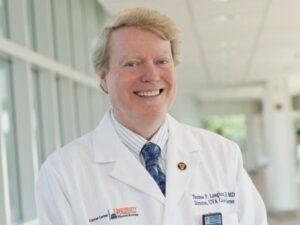Suzanne M. Miller, a professor in the Cancer Prevention and Control Program at Fox Chase Cancer Center, developed a special edition of Translational Behavioral Medicine that summarizes several major lines of cancer prevention and control research and outlines future directions.
FDA has approved Fyarro for injectable suspension (albumin-bound) for adult patients with locally advanced unresectable or metastatic malignant perivascular epithelioid cell tumor (PEComa).
FDA has approved Darzalex Faspro (daratumumab + hyaluronidase-fihj) and Kyprolis (carfilzomib) plus dexamethasone for adult patients with relapsed or refractory multiple myeloma who have received one to three prior lines of therapy.
FDA has approved Cytalux (pafolacianine), an optical imaging agent, for adult patients with ovarian cancer as an adjunct for interoperative identification of malignant lesions.
FDA has granted orphan drug designation to Ultimovacs ASA’s universal cancer vaccine UV1 for the treatment of stage IIB-IV melanoma.
The European Commission has approved the combination of Keytruda (pembrolizumab), Merck’s anti-PD-1 therapy, plus Lenvima (lenvatinib), a multiple receptor tyrosine kinase inhibitor discovered by Eisai, for the treatment of advanced or recurrent endometrial carcinoma in adults who have disease progression on or following prior treatment with a platinum‑containing therapy in any setting and who are not candidates for curative surgery or radiation.
The National Cancer Institute approved the following clinical research studies last month.
The University of Virginia has taken a long, circuitous path to NCI comprehensive cancer center designation, but it got there.
With growing evidence that molecular characterization of a tumor helps predict a patient’s prognosis and response to specific treatments, biomarker testing has been required or recommended for more than half of the 62 oncology drugs introduced over the past five years. However, health insurance policies don’t always cover tests, thus denying their clients access to precision medicine.
Emergent public-private partnerships (PPPs) have risen to the occasion to streamline and coordinate severe acute respiratory syndrome coronavirus 2 (SARS-CoV-2) vaccines. With these monumental efforts have come important public discussions about equitable access and representation in clinical trials (CTs).








